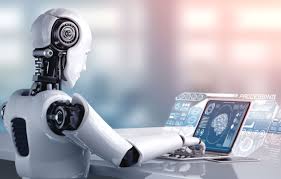Artificial Intelligence (AI) has changed into a buzzword in today’s tech-pushed community, but exactly what is it? At its key, Artificial Intelligence (umela inteligence) refers to the simulation of individual intelligence processes by machines, typically laptop or computer solutions. These operations consist of studying (the purchase of information and guidelines for using it), reasoning (using rules to achieve estimated or distinct findings), and self-modification.
artificial intelligence (umela inteligence) is not a whole new concept, but the latest improvements in processing energy and sets of rules have propelled it to the limelight. The two main main forms of AI: slim AI and general AI. Thin AI, also referred to as poor AI, was created to conduct a particular project, such as face treatment identification or words translation. Standard AI, or solid AI, is hypothetical and describes AI having the ability to comprehend, find out, and use understanding across distinct domains, similar to human intelligence.
Device discovering, a subset of AI, performs a crucial role in allowing personal computers to find out from details without being explicitly programmed. Serious understanding, a specialised form of machine studying, consists of neural sites with many different levels, permitting them to study from considerable amounts of web data. These technologies strength various AI apps, from internet assistants like Siri and Alexa to autonomous automobiles and medical diagnosis solutions.
Despite its possible advantages, AI also improves ethical and societal issues. Troubles including job displacement as a result of automation, biased sets of rules, and level of privacy violations have stimulated arguments around the world. As AI is constantly develop, it’s important to deal with these difficulties while utilizing its transformative potential for the improvement of modern society.



